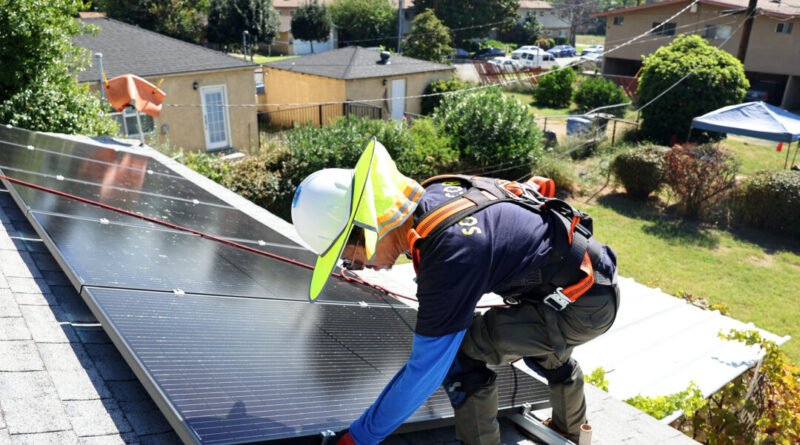Ottawa Warns that Disposing of Used Solar Panels in Landfills Poses ‘Significant’ Pollution Risk
Global Affairs Canada is in search of a contractor who can propose an eco-friendly method for recycling solar panels.
According to a government document, the disposal of used solar panels in landfills poses a significant pollution risk as toxic chemicals may seep into groundwater.
To address this issue, Global Affairs Canada is looking for a contractor who can present a cost-effective and environmentally friendly solution for recycling solar panels. This information was shared in a notice on the government website dated July 23 here.
Global Affairs Canada stated in the notice that solar panels contain valuable materials, including critical elements like aluminum, tellurium, and antimony, as well as gallium and indium in certain thin-film modules. These materials are not currently being recycled after the end of the panels’ lifespan.
The government emphasizes that solar panels and renewable energy sources are essential components of the federal initiative to achieve net-zero greenhouse gas emissions by 2050. However, as the number of panels in use increases, Ottawa needs a sustainable plan for recycling to mitigate pollution risks.
The government has allocated $1.15 million for the contract to address this issue.
The notice on the website explains that the environmental impact of solar panels is considerably higher if they are disposed of in landfills, where hazardous chemicals and heavy metals can contaminate groundwater.
The proposals for the contract must ensure that all extracted materials from the solar panels are devoid of contaminants such as metals and radiation. Contractors must also handle the toxic chemicals found in the panels, like lead and cadmium, to prevent their release into the environment and minimize health risks to humans.
Additionally, the website notes that solar panels contain certain essential elements that are suitable for recycling and reusing.
Global Affairs mentions that recycling solar panels can help reduce the necessity for mining critical minerals, which has negative environmental and social consequences. However, the complex construction of solar panels can make it challenging to separate and recycle these valuable materials.
The website emphasizes the need for a “scalable and cost-effective” recycling solution that can be implemented at any stage of the solar panels’ lifecycle, including production, usage, and end-of-life. The agency may award multiple contracts to address this issue.





